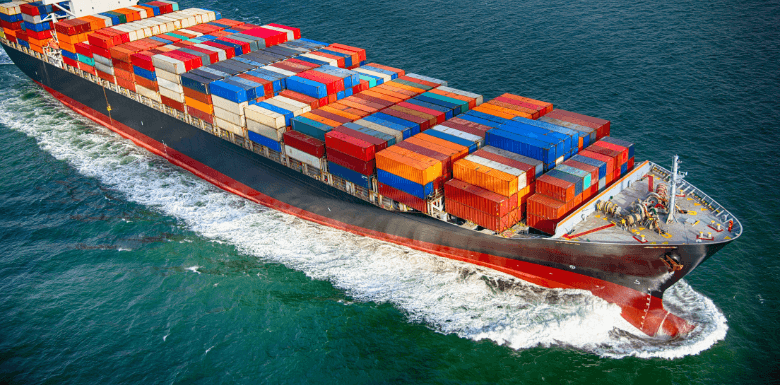Table of Contents
Introduction
The maxim“Le Batelest Oblige A La Marchandise Et La Marchandise Au Batel” which means A ship is bound to the merchandise and the merchandise to the ship for the performance on the shipper and shipowner’s respective contracts.
Therefore, it is necessary for a shipowner to make a sustainable position to shipper or carrier because the risk of a ship in the sea is always part of maritime employment.
The shipowner lien in maritime employment is one of the business practices, which gives the freedom to ship owner or carrier for contract performance and protection of interest in maritime events. This article aims to discuss the shipowner liens and its relationship between the stockholders for the sustainable shipping business.
Difference between the Shipowner Lien and Maritime Lien
“Maritime lien” refers to the privileged claim upon the properties that are connected to the sea, like the ships, and also to the services or injuries that are caused by the sea-connected properties. Examples: the wages, the master and crew of the ship, the general average claims, salvage operations, preferred ship mortgages, claims for damage or loss of cargo, etc.
“Shipowner’s lien” is a possessory lien which can be applied only to the goods that are being delivered by the shipowner when the shipper is under contract. The shipowner may be entitled to retain the cargoes as security until the payment of the debt.
Shipowner’s lien is essentially a possession lien, whereas the Maritime lien is an executory claim.
A Maritime Lien is available to the holder of bottom bond, seamen for wages, the person claiming against the ship for damages due to collision; etc, whereas the Shipowner’s Lien is entrusted with the carrier.
Nature of Shipowner’s lien in Maritime Employment
The shipowner lien is the exclusive rights, which is provided on the claims for the sustainable performance of the parties’ rights and duties as per the practice at maritime business. The rights of a shipowner’s lien can be understood on the common law and statutory laws.
On the subject of maritime employment and claim arises during the maritime adventure of the common laws’ maritime lien of the shipowner can be raised only in three cases:
The Lien for Freight
The lien for freight is analogous to the lien given by the common law to the carrier on land, who is not bound to deliver the goods to the party until the fare is paid, and if he delivers them, the encumbrance of the lien does not follow them in the hands of the owner or the consignee.
In Perez v Alsop “the right to exercise the possessory lien on cargo is restricted to the consignment of cargo. The freight is due and may be exercised over the entire consignment, even where only part of the consignment is still outstanding.”
- Freight paid in advance: Difficulties sometimes arise where freight is expressed to be paid in advance. However, the normal rule is that freight paid in advance is not subject to the common law possessory lien. In Foster v. Colby it was held that “lien cannot be exercised where the freight is payable after the delivery of the cargo or where it is not due when the cargo is claimed.”
- Right to possession: Unlike maritime lien, the shipowner’s lien for freight merely gives a right of possession of the goods. There is no right of sale of the goods, even where expense has been incurred in retaining the cargo in lieu of payment, unless the goods have been abandoned.
The lien for general average
The lien on cargo for general average charges can be exercised only by the shipowner in possession of the goods whenever necessary, it is his duty to other cargo owners to protect their interests by retaining possession of any goods in respect of which a contribution in general average is outstanding. However, owing to the difficulty of assessing the amount of such contributions and the time required for general average adjustment, it is not usual for shipowners to avail themselves of the right of lien in these circumstances.
Expenses Incurred by the Ship-owner
The master of a ship has authority to take whatever steps, necessary to protect the cargo owner’s interest during the course of the voyage.
Statutory Liens and its Importance in Maritime Law
In maritime law the subject of maritime claims are based on the practices in international maritime contracts. In maritime employment, the parties follow a particular standard form of the charter party clauses, which become the term of the contact. In case of no payment of unpaid wages as per the contract, the parties have the right to maritime lien on the things involved in maritime adventures. Various employment laws such as Maritime Labour Conventions, 2006 deals with the employment agreement and the liability and also fixed liability of the ports state, coastal state and flag state in maritime employment.
Express Contractual Lien over cargo
The Gencon clause provides that all “owners shall have a lien on the cargo for freight, dead freight, demurrage and damages for detention“. The NYPE 1946 charter provides in Clause 18 which says that the owner shall have a lien upon all cargoes and all sub-freights for any accounts due under this charter including general average contributions. In addition, the charterers to have a lien on the ship for all the money paid in advance and not earned, and any overpaid hire or excess deposit go be returned at once.
In Turner v Haiji Goolam Mahomed Azam, The ship was chartered for a period of six months with an option to sublet and chartered for a round voyage. The head charter of the bills of lading were to be signed at any rate of
freight the charterers or their agents might direct without prejudice to the charter. The charter also provided that the owners were to have a lien. ‘upon all cargoes for freight or charter money due under this charter’. Bills of lading duly issued to the sub-charterers and the owners then purported to exercise a lien on the sub-charterers cargo for time charter hire.
The Privy Council held that the owner had no right of lien on the sub-charter’s cargo and said “A right to seize one person’s goods for another person’s debt must be clearly and distinctly conferred before a court of justice can be expected to recognize it.”
Exercise of Lien in Maritime Employment
The maritime lien can be exercised on a person directly or indirectly associated with a particular transaction in shipping business the claims arise as maritime lien.
Exercise against consigned
A contractual lien may exercise against a third party where the bill of lading contains a clause, which incorporates the charter party clause. This point was made by Mocatta J in Santiren Shipping Ltd v Unimarine. “If the lien was on the facts properly exercised, it applied to the cargo here by reason of the incorporating clause in the bill of lading.”
Time of Exercise
If the shipowner has the right to exercise a lien over cargo, this cannot be exercised by halting the laden ship enroute to the port of discharge.
In International Bulk Carriers (Beirut) SARL vs. Evlogia Shipping Co SA (The
Mihalios Xilas), it was held by Donaldson Ji that “I do not think that a shipowner can usually be said to be exercising a lien on cargo by refusing to carry it further. The essence of the exercise of a lien is the denial of possession of the cargo who wants it. No one wanted the cargo in Augusta and the owners were not denying the possession of it to anyone.
It may be possible to exercise a lien by refusing
to complete the carrying voyage, but I think that this can only be done when, owing to special circumstances, it is impossible to exercise a lien at the port of destination and any further carriage will lead to a loss of possession of the cargo following the arrival at that port. In such circumstances, a refusal to carry further can be said to be a denial of the receiver’s right to possession.
Place of Exercise
It is usually sufficient for the ship to have anchored off the declared port of discharge for the right of lien to be exercised. In case of Sanitern Shipping Ltd vs Unimarine it was held that ” The place where Right to lien is exercised Might involve unnecessary expense as in certain cases cause congestion in the ports which would seriously limit the commercial value of a lien on cargo granted by a clause in the charter”.
Construing Waiver
Ship-owners may retain the goods until the amount of lien is paid. However, an unyielding adherence to such practice would create serious impedance to the normal shipping operations. Shipowner is then likely first to discharge the cargo (not deliver it) to give the cargo owner or the consignee an opportunity to inspect the freight, provided that the shipowner can reasonably land, lighter and warehouse without the risk of losing his Lien.
Conclusion
The right to maritime claim in maritime business with significant provision is important for protection of the interest of the ship owners. If the shipowner suffers any loss from his own fault it is covered and protected in insurance or the protection and indemnity clauses. To protect and provide a remedy out of claim is an important means of the future of work in maritime employment.



